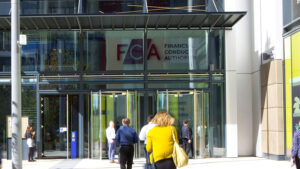Ruffer Investment Company experienced steady net asset value (NAV) growth of 1.8% during November, but warned that the short-term market gains may not constitute a sound base for a sustained rally.
The FTSE All Share total return grew 7.1% across the month, a rise that Ruffer was largely unable to participate in due to its low equities exposure. However, the bond-heavy company has delivered an increase of 7.7% in NAV per share to reach 307p.
Its share price has grown similarly, sitting at 311p at the end of November, leaving the company trading at a premium of just over 1%.
This has tightened from the 2.6% premium at which it traded on 31 October, when NAV was down at 302p per share, and represents a significant recovery from the 5.6% discount at the end of September.
Short-dated bonds make up more than a fifth of the fund (22%), and managers Duncan MacInnes and Jasmine Yeo (pictured) have increased the weighting since last month. UK Treasury index-linked 0.125% 2024 make up 8.5% of the fund, with US government bonds making up the rest of the top five largest fixed income holdings.
BP is the largest equity holding, at 1.7%, with no other company making up more than 0.5% of the fund.
The market capitalisation of the fund stood at £1.1bn on 31 November, marking the third consecutive month of growth in that regard.
At the end of October, Ruffer stated that active management, including the use of cash, would continue to be vital in driving returns. During November, the proportion of cash in the strategy grew from 3.6% to 10.9%, making cash the third largest holding.
This may well have been informed by Ruffer’s belief that inflation will linger. The report said: “We have no argument with the idea that inflation (at least in the US) may have peaked and could fall quite sharply in coming months. Where we disagree with both central bank forecasts and market expectations is in their faith that inflation will return to target anytime soon. We think wage rises will make inflation stickier than predicted and see evidence for this in the strength of both US and UK private sector wage inflation, plus the depressing sight of increasing numbers of strikes here in the UK. This, plus concerns that markets currently underestimate the impact on corporate profits of a likely recession next year, has made us nervous of adding to equities.”
It added: “Ruffer portfolios were negatively correlated to both equities and bonds as they fell sharply earlier in the year. Adjustments to the portfolio meant it was positively correlated to equities in November, as markets staged a recovery. Such ‘perfect’ shifts in correlation cannot be expected every month, but it is reassuring to see both sides of our investment approach in good working order.”
See Also: Ruffer investment director exits after two decades







